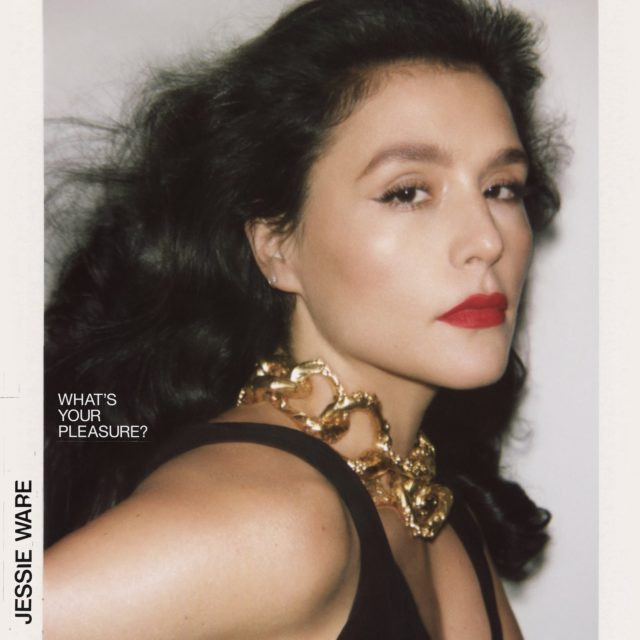Popular Reads
Top Results
Can't find what you're looking for?
View all search resultsPopular Reads
Top Results
Can't find what you're looking for?
View all search resultsJessie Ware's fourth outing offers 'Pleasure' galore
Jessie Ware’s fourth offering, the evocatively titled What’s Your Pleasure?, showcases a paean to the funkified end of pop music of the 1980s – all strutty, syncopated rhythms and sinewy basslines – following the downfall of disco at the onset of the decade.
Change text size
Gift Premium Articles
to Anyone
P
utting out a dance record when the settings under which we’re accustomed to basking in its corporeal glory are practically non-existent might seem gratuitous.
Jessie Ware’s fourth offering – the evocatively titled What’s Your Pleasure? – begs to differ.
It’s all too tempting to compare Pleasure with Dua Lipa’s Future Nostalgia or Lady Gaga’s Chromatica, on the very grounds that all three are recent high-profile releases that promise dancefloor escapism – when there’s no dancefloor available to escape to.
On the flipside, Pleasure is a fascinating document on how the concept of “dance music” is interpreted by an air sign performer (Ware is a Libra) versus her fire sign peers (Lipa is a Leo, Gaga an Aries) who bark where Ware coos; if bluster and bombast epitomize Future Nostalgia and Chromatica, Pleasure revels in subtleties and textures.
Right off the bat, these are the very qualities that inform Pleasure and have in fact typified the British songstress’ oeuvre from the get-go. However, where in the past she would only occasionally flirt with strobe-lit confections via deep album cuts or one-off releases, Pleasure is her first full-length in a decade-long career that fully, unabashedly immerses itself in, to quote Janet Jackson’s 1987 hit, the pleasure principle.
Pleasure’s principle is to showcase a paean to the funkified end of pop music of the 1980s – all strutty, syncopated rhythms and sinewy basslines – following the downfall of disco at the onset of the decade. Second single and album standout “Mirage (Don’t Stop)” is a prime instance of this modus operandi: Not only does it reference Indeep’s 1983 smash “Last Night a D.J. Saved My Life”, it also directly samples Bananarama’s classic “Cruel Summer” from the same year.
The preceding track “Read My Lips” also recalls the rubbery delight of Anita Ward’s immortal “Ring My Bell” and doubly serves as something of an older, sexier sister to both Ware’s own “Champagne Kisses” and Katharine McPhee’s similarly titled “Lick My Lips” – both were released in 2015.
On the other hand, “Save a Kiss” is all palpitating heart and thrilling rush induced by a tryst. Buoyed by propulsive synths and swooping strings, with heavenly harmonies on top, it’s incontestably one to remember – and then some. Likewise, the title track is replete with innuendos (“Push, press, more, less,” she instructs in murmury ecstasy) and breathy come-ons.
It’s followed by the one-two punch seduction by way of “Ooh La La”, a crystalline concoction reminiscent of Patrice Rushen’s eternal “Forget Me Nots”, and “Soul Control”, a delicious Devo-meets-Nu Shooz groove. Meanwhile, “Step into My Life” is what a Sade and Nu Shooz joint track in the mid-80s might have sounded like.
Things slow down considerably in “In Your Eyes” – Ware’s own entry to a canon populated by identically titled classics by Peter Gabriel and Kylie Minogue, among others – easily the sole cut on Pleasure most reminiscent of Ware’s sumptuous, languid back catalog.
Conversely, “The Kill” treads a darker, more menacing sonic path, not unlike prime era Röyksopp or, naturally, Simian Mobile Disco, whose one-half James Ford is Pleasure’s chief producer. On a corresponding note, the hypnotic “Adore You” – the only contribution from Metronomy’s Joseph Mount and the first song cut for the album – showcases melancholic tenderness not unlike Robyn’s monumental “Honey” – coincidentally a fellow Mount production.
Pleasure, however, is bookended by two surging, jovial numbers: “I just wanna stay in the moonlight,” Ware croons dreamily in opener “Spotlight”, which opens with a vocal-piano intro before giving way to booming beats and blips, while she instructs her listeners to “remember where you are” at the album’s tail end over a swelling soundscape that harks back to the age of classic disco and quite literally ends Pleasure on a high note.
Taken as a whole, we’re left with the very gist of Pleasure: that amid all the pains currently ruling over our world, life’s simple pleasures are readily found, whether we look back or stay where we are. “I want there to be an element of escapism and fantasy. I wanted that to take me away to an imaginary place and an imaginary situation, which I think lots of people can relate to right now,” muses Ware in Pleasure, in a recent conversation with fellow pop troubadour Róisín Murphy.
In doing so, Ware and her collaborators have successfully captured the very essence of dance music: to uplift and not just appease, to galvanize and not just excite.
Pleasure is ample proof that the best dance music is, more often than not, less in your face, more under your skin – where true-blue pleasures lie. (kes)
***
Fajar Zakhri is a pop music critic based in Jakarta.











